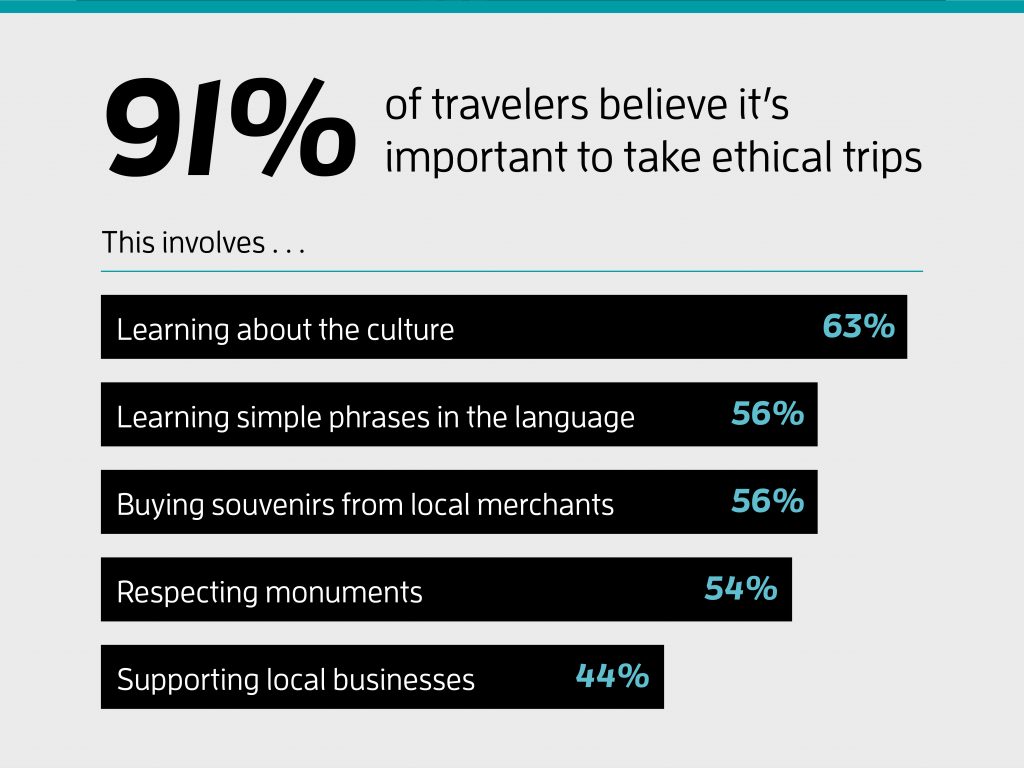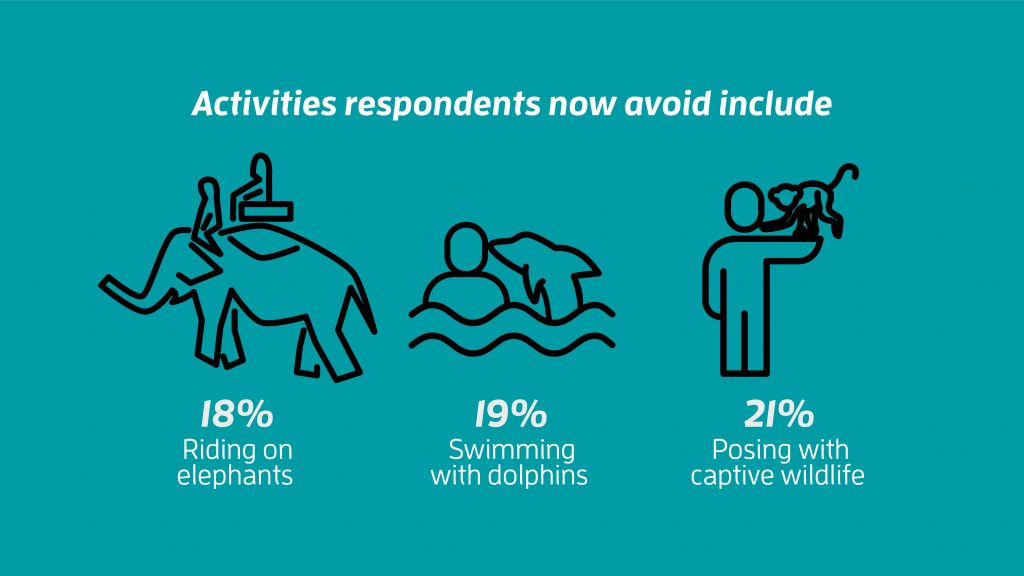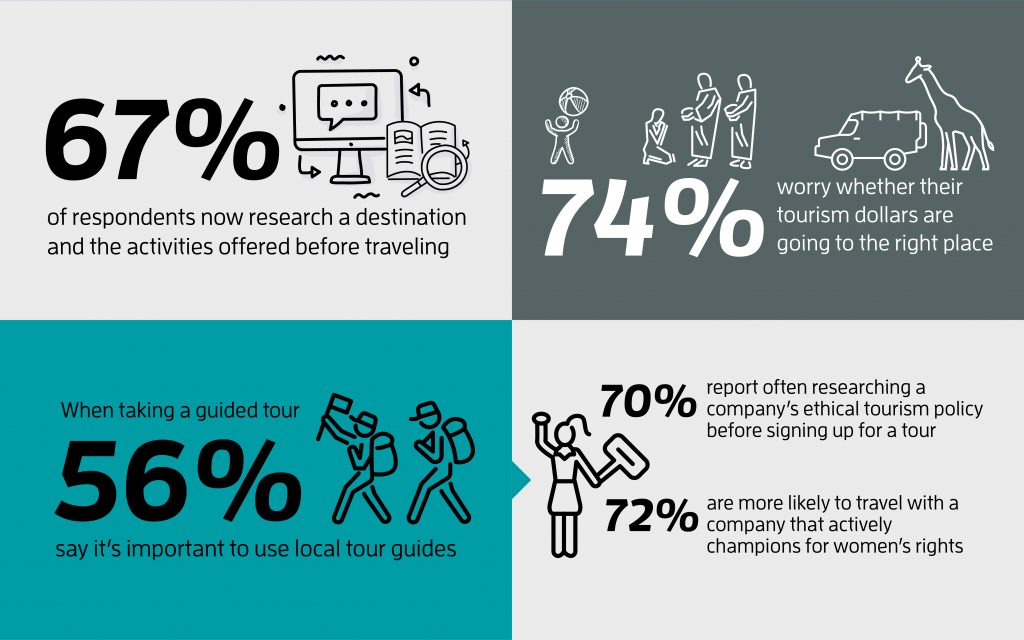After a long drought followed by heavy rains, California experienced a colorful super bloom in mid-March that painted its landscape with wildflowers in every shade of the rainbow. The colorful backdrop attracted a deluge of visitors eager to see it for themselves, but with all these travelers came a bit of unethical behavior as well. Some people stepped off the established trails and charted their own way through the flowers. Others picked the blooms instead of leaving them untouched for others to enjoy.

Despite these undesirable behaviors committed by a few, many people who visited the super bloom sites were aware they needed to act mindfully and with respect. In the age of responsible tourism, perhaps it’s no surprise that people are thinking about mindful behavior when they travel. In fact, recent research conducted by OnePoll on behalf of Exodus Travels found 78 percent of survey respondents consider themselves to be more ethically conscious travelers than they were a year ago. In addition, 39 percent have “travel guilt” after taking a trip they now worry may have been unethical. The survey was given to 2,000 Americans who travel internationally.
So what, exactly, are these unethical activities travelers say they wouldn’t repeat? Animal welfare ranked high on the list with travelers saying they would not participate in activities such as posing for photographs with captive wildlife (21 percent); swimming with captive dolphins, sharks, or whales (19 percent); riding elephants (18 percent), and buying products made from ivory or other endangered species (17 percent). Responsible tourism also includes appropriate interaction with locals, and survey respondents said they’d avoid staged cultural visits (20 percent) and slum tours (18 percent) in the future.

The ATTA’s senior director for strategy and impact, Christina Beckmann, observed, “Modern travelers focused on having local, authentic, unique experiences often can’t help but to become aware of environmental or social issues in the places they visit. Especially as they are finding new ways to access local guides, their insight into local topics is enhanced. As well, our research has shown us that travelers want to learn and establish meaningful connections when they travel; this motivation aligns well with the trend toward more ethical behavior.”
As they become more aware of responsible tourism practices, travelers have also formed an idea of what it means to take an ethical trip. This includes learning about the culture (63 percent), learning simple phrases in the language (56 percent), and buying souvenirs from local merchants (56 percent). Luckily for all those wildflowers in California, it also includes following the Leave No Trace principles (30 percent).

In order to ensure they’re taking ethical trips, travelers are seeking out tour operators who meet their standards of responsible travel. Seventy-four percent of respondents worry whether their tourism dollars are going to the right place, and 56 percent of respondents want tour companies to use local guides. They’re also looking for tour companies to have responsible wildlife policies (57 percent) and an ethical tourism policy (52 percent). To ensure their trips are, in fact, ethically responsible, the average respondent would be willing to pay 33 percent more for a trip.
“As the population of globally experienced travelers continues to grow, we expect and hope to see more pressure on guides and operators to act responsibly,” Beckmann said. “Consumer pressure is certainly one of the most persuasive influences to encourage guides and operators not familiar with responsible practices to improve their operations.”
